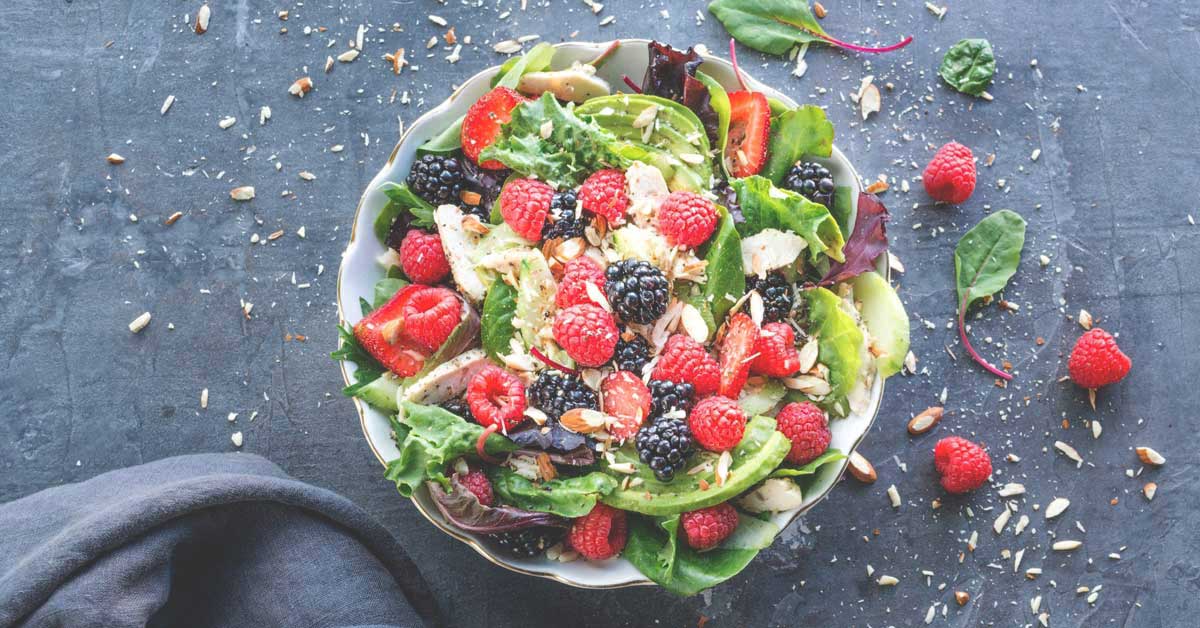15 Incredibly Heart-Healthy Foods
Heart disease accounts for nearly one-third of all deaths worldwide.
Diet plays a major role in heart health and can impact your risk of heart disease.
In fact, certain foods can influence blood pressure, triglycerides, cholesterol levels and inflammation, all of which are risk factors for heart disease.
Here are 15 foods that you should be eating to maximize your heart health.
1. Leafy Green Vegetables
Leafy green vegetables like spinach, kale and collard greens are well-known for their wealth of vitamins, minerals and antioxidants.
In particular, they’re a great source of vitamin K, which helps protect your arteries and promote proper blood clotting.
They’re also high in dietary nitrates, which have been shown to reduce blood pressure, decrease arterial stiffness and improve the function of cells lining the blood vessels.
Some studies have also found a link between increasing your intake of leafy green vegetables and a lower risk of heart disease.
One analysis of eight studies found that increasing leafy green vegetable intake was associated with up to a 16% lower incidence of heart disease.
Another study in 29,689 women showed that a high intake of leafy green vegetables was linked to a significantly lower risk of coronary heart disease.
2. Whole Grains
Whole grains include all three nutrient-rich parts of the grain: germ, endosperm and bran.
Common types of whole grains include whole wheat, brown rice, oats, rye, barley, buckwheat and quinoa.
Compared to refined grains, whole grains are higher in fiber, which may help reduce “bad” LDL cholesterol and decrease the risk of heart disease.
Multiple studies have found that including more whole grains in your diet can benefit your heart health.
One analysis of 45 studies concluded that eating three more servings of whole grains daily was associated with a 22% lower risk of heart disease.
Similarly, another study found that eating at least three servings of whole grains significantly decreased systolic blood pressure by 6 mmHg, which is enough to reduce the risk of stroke by about 25%.
When purchasing whole grains, make sure to read the ingredients label carefully. Phrases like “whole grain” or “whole wheat” indicate a whole-grain product, while words like “wheat flour” or “multigrain” may not.
3. Berries
Strawberries, blueberries, blackberries and raspberries are jam-packed with important nutrients that play a central role in heart health.
Berries are also rich in antioxidants like anthocyanins, which protect against the oxidative stress and inflammation that contribute to the development of heart disease.
Studies show that eating lots of berries can reduce several risk factors for heart disease.
For example, one study in 27 adults with metabolic syndrome showed that drinking a beverage made of freeze-dried strawberries for eight weeks decreased “bad” LDL cholesterol by 11%.
Metabolic syndrome is a cluster of conditions associated with a higher risk of heart disease.
Another study found that eating blueberries daily improved the function of cells that line the blood vessels, which help control blood pressure and blood clotting.
Additionally, an analysis of 22 studies showed that eating berries was associated with reductions in “bad” LDL cholesterol, systolic blood pressure, body mass index and certain markers of inflammation.
Berries can be a satisfying snack or delicious low-calorie dessert. Try adding a few different types to your diet to take advantage of their unique health benefits.
4. Avocados
Avocados are an excellent source of heart-healthy monounsaturated fats, which have been linked to reduced levels of cholesterol and a lower risk of heart disease.
One study looked at the effects of three cholesterol-lowering diets in 45 overweight and obese people, with one of the test groups consuming one avocado per day.
The avocado group experienced reductions in “bad” LDL cholesterol, including lower levels of small, dense LDL cholesterol, which are believed to significantly raise the risk of heart disease.
Another study including 17,567 people showed that those who ate avocados regularly were half as likely to have metabolic syndrome.
Avocados are also rich in potassium, a nutrient that’s essential to heart health. In fact, just one avocado supplies 975 milligrams of potassium, or about 28% of the amount that you need in a day.
Getting at least 4.7 grams of potassium per day can decrease blood pressure by an average of 8.0/4.1 mmHg, which is associated with a 15% lower risk of stroke.
5. Fatty Fish and Fish Oil
Fatty fish like salmon, mackerel, sardines and tuna are loaded with omega-3 fatty acids, which have been studied extensively for their heart-health benefits.
In one study in 324 people, eating salmon three times a week for eight weeks significantly decreased diastolic blood pressure.
Another study showed that eating fish over the long term was linked to lower levels of total cholesterol, blood triglycerides, fasting blood sugar and systolic blood pressure.
Additionally, each 3.5-ounce (100-gram) decrease in weekly fish consumption was associated with a 19% higher likelihood of having one additional risk factor for heart disease, such as high blood pressure, diabetes or obesity.
If you don’t eat much seafood, fish oil is another option for getting your daily dose of omega-3 fatty acids.
Fish oil supplements have been shown to reduce blood triglycerides, improve arterial function and decrease blood pressure.
Other omega-3 supplements like krill oil or algal oil are popular alternatives.











